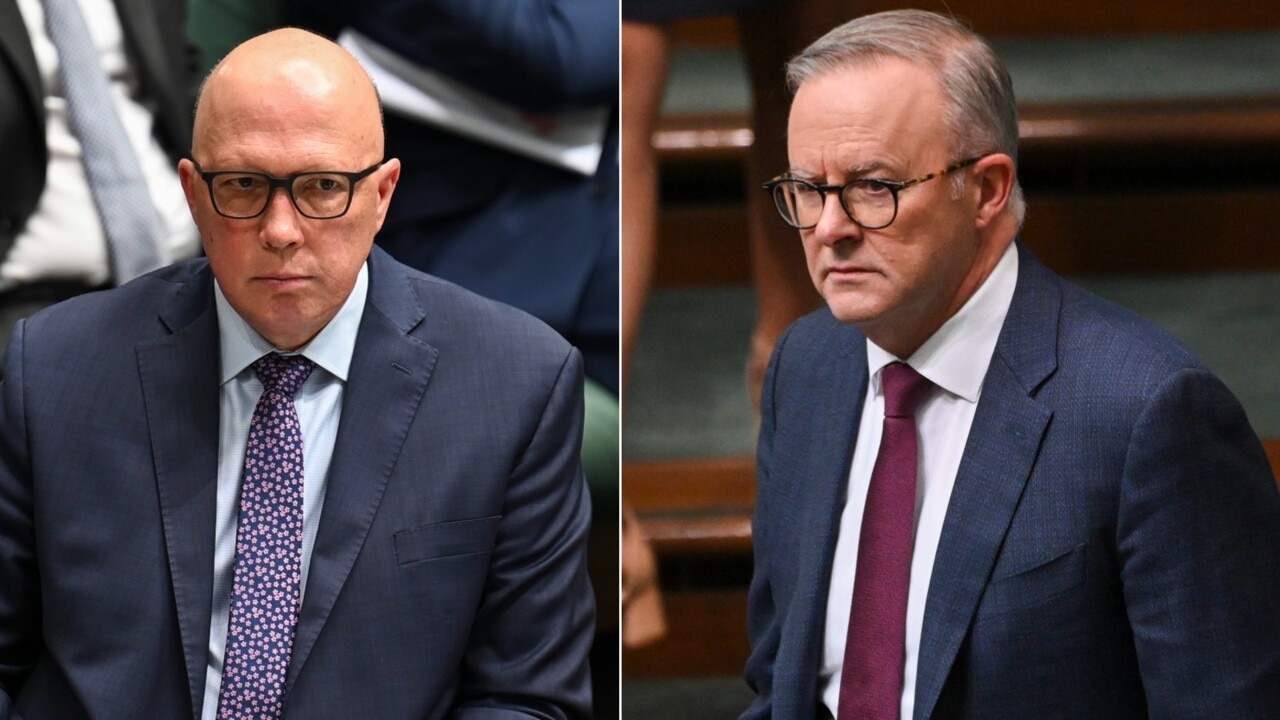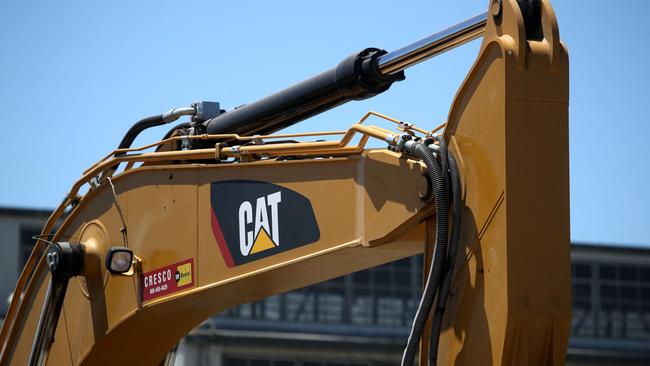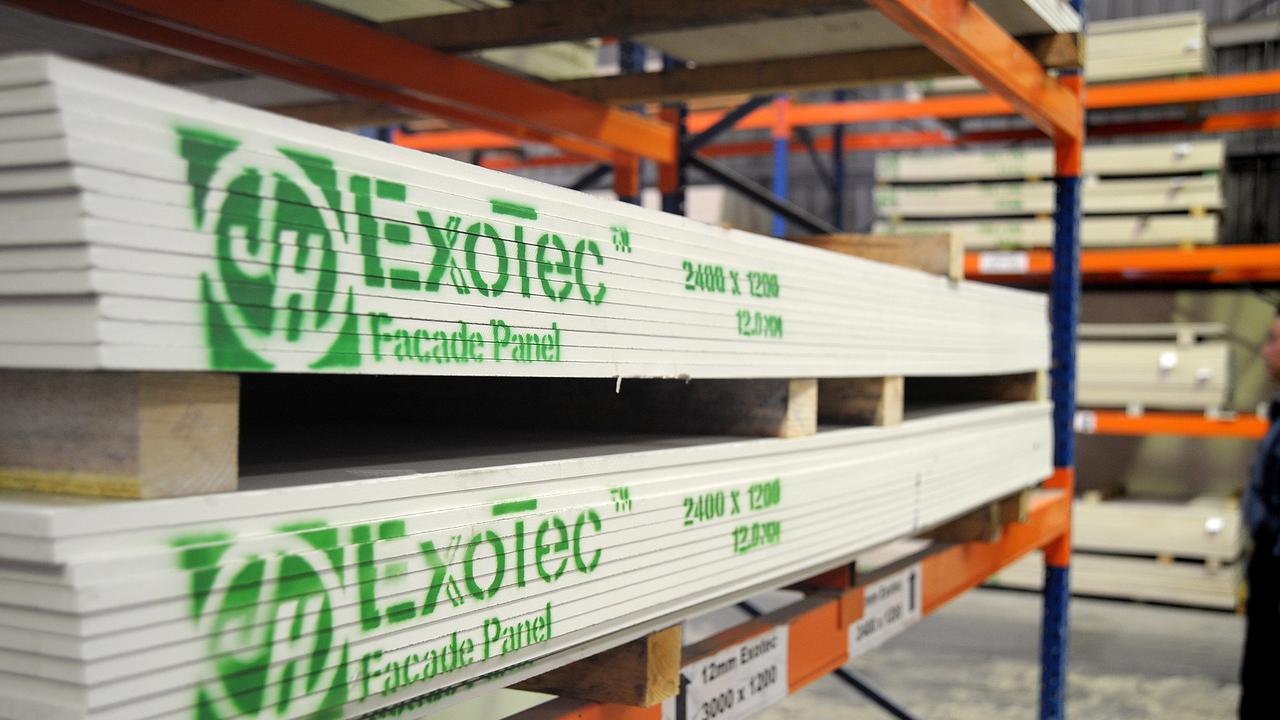Stokes warns on rates as Seven Group lifts profit
The rapid pace of interest rate rises is hurting consumers warns Seven Group CEO Ryan Stokes after announcing increased profit at WesTrac, Coates and Boral.

Seven Group Holdings chief executive Ryan Stokes believes consumers are struggling to cope with the rapid escalation in mortgage repayments and has warned the Reserve Bank of Australia needs to put the brakes on further hikes while they adjust to higher interest rates.
The son of billionaire Kerry Stokes said while the official interest rate of 4.1 per cent is “not unreasonable”, the “dramatic” pace of 12 rate rises since May 2022 is causing people to struggle.
“It‘s been a staggering change in the last 15 months and that’s where it’s a very difficult process for those who are directly exposed, which is traditionally consumers,” Mr Stokes said. “The pace of that change is what’s probably going to cause pain and concern.”
The RBA has been raising rates to try curb near record high inflation but in doing so faces a difficult challenge of not stalling already-slowing economic growth, or contributing to the growing housing crisis for buyers and renters alike. Mr Stokes questioned whether another 25 basis point increase would be a tipping point.
“Hopefully, there’s some stability that will enable everyone to adjust to this current cost of debt,” Mr Stokes said. “Where rates are is more than sufficient to start to moderate elements around inflation. Pushing rates harder, quickly, is probably going to be somewhat counter-productive.”
Seven Group has its most significant consumer exposure to interest rates through Boral, the listed construction giant it seized control of in 2021 through a lengthy $8bn takeover battle, as well as Coates, the nation’s largest industrial and general equipment hire company.
On Thursday, Seven Group said underlying earnings before interest and tax (EBIT) rose 20 per cent on the previous corresponding period to $1.187bn, beating market expectations by three per cent.
Revenue rose 20 per cent for the year to $9.627bn, which was above market expectations of $9.06bn.
Despite the higher interest rate environment, Seven’s earnings before interest and tax (EBIT) from Boral more than doubled for the year ended June 20, 2023, to $232m.
Boral is in the midst of a turnaround since Seven grabbed control, with Stokes installing a new chief executive Vik Bansal, selling off circa $US4bn of assets in the US and refocusing the business on its domestic bricks and concrete operations.
Mr Stokes said growth from Boral would “moderate” but kick back up as the various state and federal governments agreed on how to fix the housing shortage and work through planning and costs to construction.
“What’s been identified as a housing crisis is really a supply issue,” Mr Stokes said. “If you look at the cost of housing it comes back to this lack of supply, so every attribute points to a construction requirement to solve this issue. That will play positively for Boral and for Coates so we feel pretty confident over the medium term.”

Coates is Seven’s second biggest contributor to earnings and posted a 22 per cent rise for the year to $300m.
WesTrac is the jewel in the crown and the biggest earner for Seven Group. WesTrac owns the Caterpillar franchise in the key mining states of Western Australia, New South Wales and the Australian Capital Territory. EBIT from WesTrac was just above market expectations and 18 per cent up on the previous corresponding period to $500m.
Airlie deputy head of Australian equities, Emma Fisher, said the Seven results were “great” driven by the strong-end markets of resources, construction and building products, and proved conglomerates can work when run well.
“Conglomerates generally have a bad reputation, but we are impressed by the owner-mindset that Ryan Stokes brings to the business,” Ms Fisher said.
“The Boral turnaround, led by Stokes-appointed Vik Bansal appears to be on track. The concrete industry has faced enormous cost pressures over the last few years, and is now benefiting from the long-awaited return of price discipline in the industry, led by Boral. Hopefully we are seeing similar signs in the recent board and management changes at Beach.”
Beach Energy, 30 per cent owned by Seven Group, has been an underperformer but since Mr Stokes has joined the board the company has pushed out chief executive Morne Engelbrecht and is installing Santos executive Brett Woods at the helm.
Seven’s energy unit – which includes the 30 per cent stake in Beach Energy – saw EBIT fall 26 per cent to $114m. EBIT also dropped in its media unit – housing a 39.3 per cent shareholding in Seven West Media – by 23 per cent to $61m.
Mr Stokes has said previously that labour shortages were impacting on growth but on Thursday he said these problem was starting to ease. This aligns with jobs data released on Thursday, which showed the red-hot labour market may be slowing after unemployment lifted to a higher than expected 3.7 in July.
Looking forward, Macquarie Bank analyst Mitchell Sonogan said the “strong” earnings and cash flow has positioned the company for stronger-than-previously-expected earnings in the current year.
“The core Industrial businesses continue to outperform expectations, and full year 2024 guidance for high single to low double-digit is ahead of our current forecasts
(+6.5%),” Mr Sonogan said in a research note. “Strong operating cashflow drove debt reduction and leverage landing well below the 2.5x target ahead of time.”
The company announced a fully franked dividend of 23 cent per share, unchanged from the previous year.
Shares in Seven Group have been marching upward this year, rising more than 25 per cent to dramatically outpace the ASX 200 as investors have bet on the ongoing growth of its WesTrac Caterpillar unit and the improvements to profitability at Boral.




To join the conversation, please log in. Don't have an account? Register
Join the conversation, you are commenting as Logout